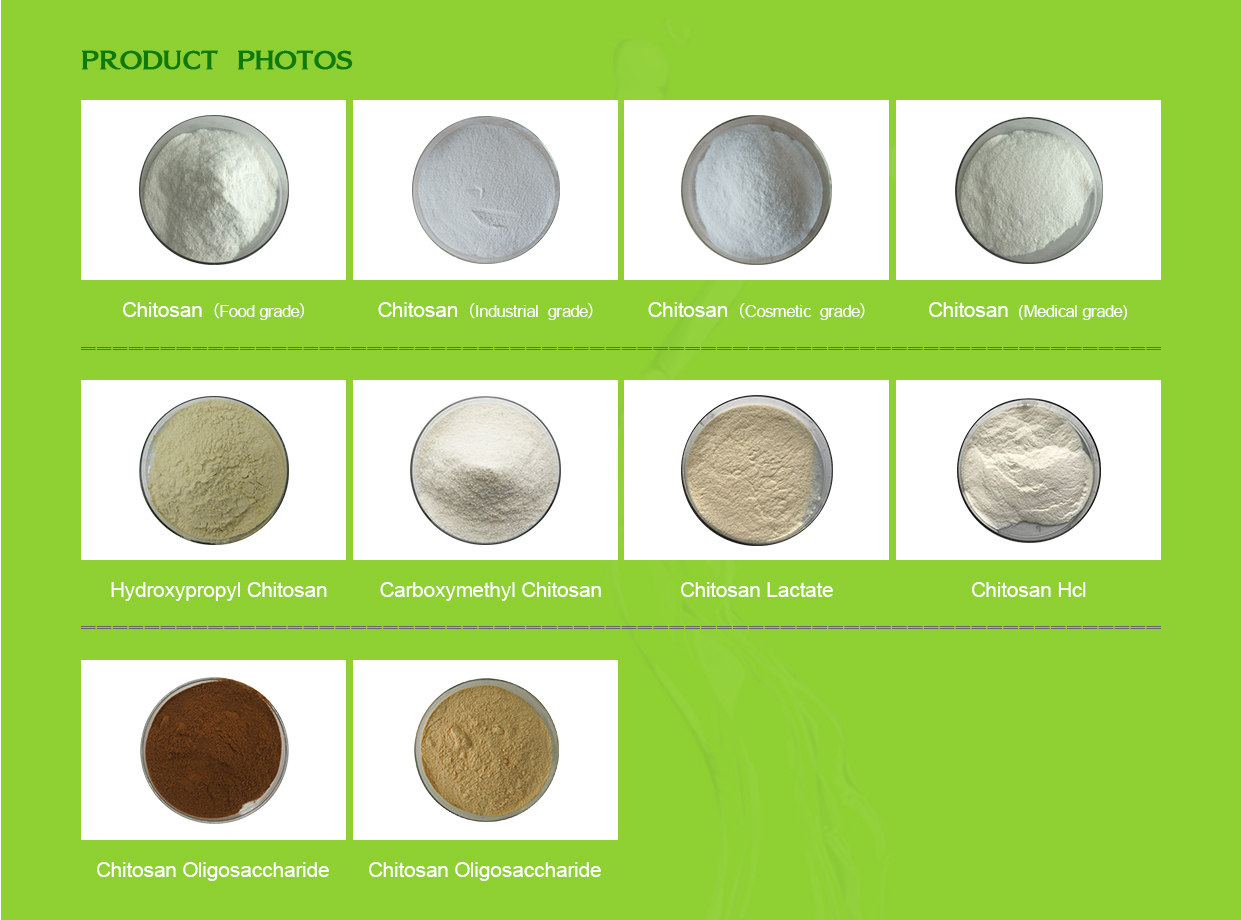Chitosan is a biopolymer derived from chitin, a natural polysaccharide found in the shells of crustaceans like shrimp and crabs, as well as in the cell walls of fungi. Chitosan has gained attention for its various potential effects and functions, particularly in the fields of medicine, agriculture, and industry. Here are some of its notable effects and functions:

Biomedical Applications:
- Wound Healing: Chitosan possesses antibacterial and hemostatic properties, making it useful for wound dressings and tissue engineering. It can help promote wound healing and reduce the risk of infection.
- Drug Delivery: Chitosan nanoparticles can be used to encapsulate and deliver drugs to specific target sites in the body, improving drug effectiveness and reducing side effects.
- Tissue Regeneration: Chitosan scaffolds can be used to support tissue regeneration in bone and cartilage repair, as well as in other tissue engineering applications.
- Dental Care: Chitosan-based mouthwashes and toothpastes are being explored for their potential in preventing dental caries and gum diseases.
Agricultural Applications:
- Crop Protection: Chitosan has antifungal and antimicrobial properties, which can be used to protect crops from fungal and bacterial infections. It can be applied as a natural pesticide or fungicide.
- Plant Growth Enhancement: Chitosan treatments have been shown to enhance plant growth, improve nutrient uptake, and increase resistance to environmental stressors.
Food Industry:
- Food Preservation: Chitosan’s antimicrobial properties can be utilized to extend the shelf life of perishable foods by inhibiting the growth of spoilage microorganisms.
- Edible Films and Coatings: Chitosan can be used to create edible films and coatings for fruits and vegetables, providing a protective barrier and reducing post-harvest losses.
Water Treatment:
- Wastewater Treatment: Chitosan can be used in water treatment processes to remove heavy metals, dyes, and other pollutants from industrial wastewater.
Weight Management:
- Dietary Supplement: Chitosan is sometimes used as a dietary supplement due to its purported ability to bind to dietary fats in the digestive tract, potentially reducing fat absorption and aiding in weight management.
Cosmetics and Skincare:
- Skin Care Products: Chitosan is used in some cosmetic and skincare products for its moisturizing and anti-aging effects. It can help improve skin hydration and texture.

It’s important to note that while chitosan has shown promise in various applications, more research is often needed to fully understand its mechanisms of action and potential benefits. Additionally, individual results can vary, and the effectiveness of chitosan-based products may depend on factors such as concentration, formulation, and application method. As with any substance, it’s advisable to consult with experts and follow established guidelines when using chitosan for specific purposes.
